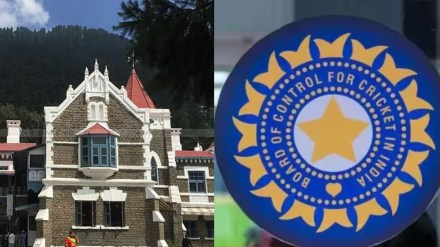The Uttarakhand High Court on Tuesday sent a notice to the Board of Control for Cricket in India (BCCI) over petitions seeking an inquiry into alleged misuse of government funds by the Cricket Association of Uttarakhand (CAU).
The case came up before Justice Manoj Kumar Tiwari, who was hearing petitions filed by Dehradun resident Sanjay Rawat and others. They highlighted an audit report of CAU’s 2024-25 accounts, conducted by an external auditor, which mentioned shocking expenses, including Rs 35 lakh spent on “bananas for players”.
Huge spending on events
According to the audit, the association paid Rs 6.4 crore as event management fees. It also spent Rs 26.3 crore on tournaments and trial matches, up from Rs 22.3 crore the previous year.
Petitioners alleged that despite these huge expenses, the players never received the facilities promised to them.
The petitioners accused CAU of siphoning off crores of rupees in the name of food and player expenses. They argued that money meant for cricket development was misused for personal benefit. The High Court has listed the case for the next hearing on Friday.
Tender row over Uttarakhand Premier League
On September 5, the High Court heard another case, this time about problems in giving out the tender for the upcoming Uttarakhand Premier League (UPL) 2025, which is set to start on September 23.
The petition was filed by former CAU vice-president Surendra Bhandari, who claimed that the contract was handed over to just one company without a fair bidding process. A bench of Chief Justice G Narendar and Justice Subhash Upadhyay sent notices to the BCCI, the Uttarakhand Cricket Board, and its officials, asking them to reply.
Bhandari also reminded the court that CAU was recognised by BCCI in 2019 and, since then, the national cricket body has given more than Rs 22 crore in funding. However, instead of improving facilities and nurturing talent, he alleged that the money was diverted for personal gains by office bearers.
In his petition, Bhandari further claimed that players were not given proper training or facilities. Instead, in the name of development, they were only provided with bananas and water.
